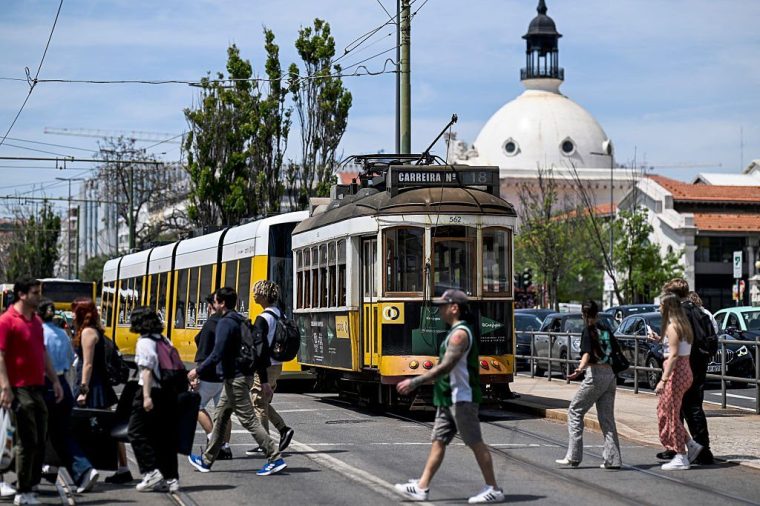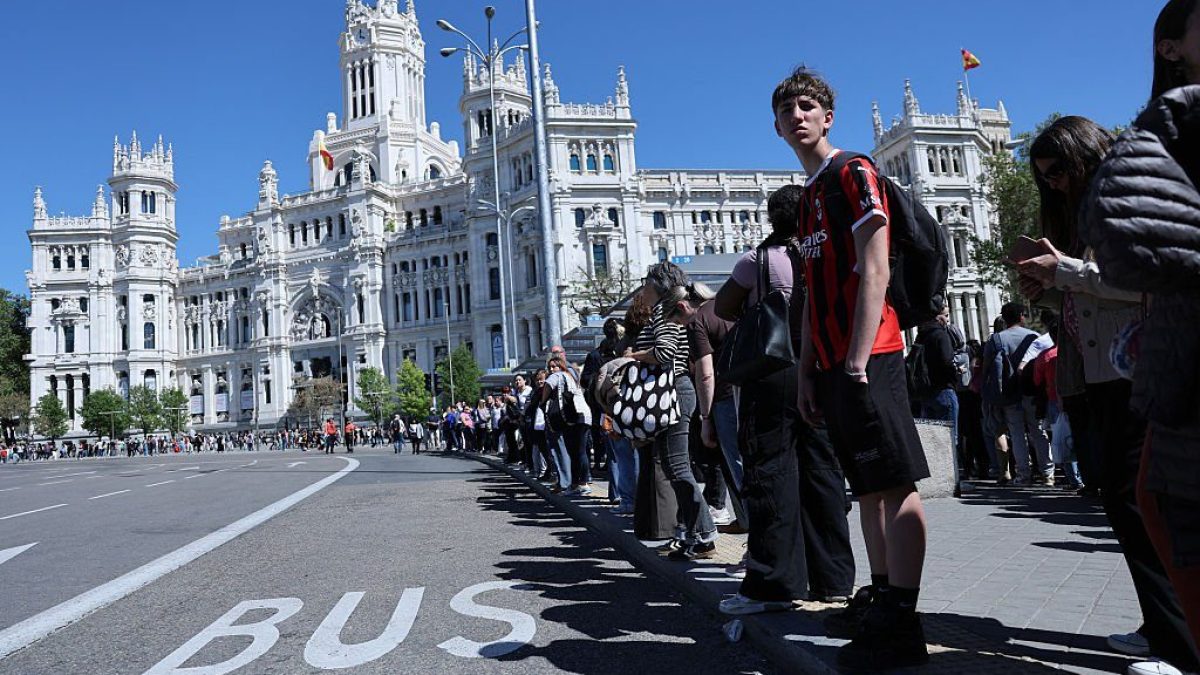Spain, Portugal and France are popular destinations among British tourists, with millions visiting all three countries each year.
On Monday, the Iberian peninsula was hit with power cuts that are likely to affect holidaymakers’ plans.
At around midday local time, the electricity supply shut down in many parts of Spain and Portugal, affecting the internet, mobile phones, cash machines, traffic lights and trains.
Small areas of France, close to the Spanish border, have also been affected, but not as severely.
The Portuguese electricity operator announced that the outage was caused by an apparent atmospheric phenomenon, believed to be related to variations in temperature. The EU Council has ruled out a cyber attack as the cause.
Here’s everything travellers need to know.
What it means for flights
Aviation analytics firm Cirium said that there were scheduled to be more than 500 flights from the UK to Spain and Portugal on Monday, equating to around 95,000 seats one way.
At Madrid and Lisbon, each country’s respective busiest airport, dozens of flights were cancelled. At Heathrow, British Airways has grounded at least one return flight to the Portuguese capital.
There are also reports of delays of up to two hours at Barcelona airport. EasyJet released a statement confirming that “power failures in Portugal and Spain are impacting access to some airports and affecting some airports’ operations including Lisbon [and] Madrid.
“Like all airlines, we are experiencing some disruption to our flying programme meaning that some return flights from Lisbon and Madrid have been unable to operate,” the airline added.
It said that its flights to Porto and Faro airports are operating as planned.
Airline passengers should check online flight trackers and local advice before travelling.
Further south on the peninsula, Spain’s Alicante and Malaga airports, and Portugal’s Faro airport, are not severely affected.
Airports on Spanish islands (the Balearics and the Canaries) and Portuguese islands (Madeira and the Azores) have not been affected.
What to expect on roads and railways
In Spain, Renfe, the national rail company, announced that all power to its network had been cut off, which means there are no trains running.
In Madrid and Barcelona, as well as in Lisbon and Porto across the border, Metro and electric tram networks came to a halt.
 Pedestrians walk past a stopped tram in Lisbon, Portugal as the power outage there continues (Photoi: Patricia De Melo Moreira/AFP)
Pedestrians walk past a stopped tram in Lisbon, Portugal as the power outage there continues (Photoi: Patricia De Melo Moreira/AFP)
While buses are running, failed traffic lights mean that there is gridlock on many roads.
Spanish grid operator, Red Electrica, is confident that electricity across the Iberian Peninsula will be restored “eventually”.
What is the official travel advice?
The UK’s foreign office (FCDO) said: “We are aware of reports of power outages across Andorra, mainland Spain and mainland Portugal and are monitoring the situation.
“There may be travel disruption, check with your tour operator or airline for more information before travelling. Follow the advice of the local authorities and monitor local updates.”
What are my rights?
It is unlikely that you’ll get a refund if you decide to cancel your trip as the UK foreign office has not warned against travel to any part of Spain, Portugal, Andorra or France.
If you wish to postpone a package trip, get in touch with your tour operator to discuss your options. If you booked your holiday independently, it is worth contacting your accommodation provider to see if they will offer any flexibility.
Some travel insurance policies do provide cover for unexpected events and may help you to postpone your trip, albeit for a fee.
If your flight has been cancelled, you have the right to choose between receiving a refund or travelling on the next available flight to your destination.
UK passenger rights apply to flights departing from an airport in the UK on any airline, arriving at an airport in the UK on an EU or UK airline, or arriving at an airport in the EU on a UK airline.
Under UK law, airlines must provide passengers with care and assistance if their flight is significantly delayed. If your flight is delayed, many airlines will provide vouchers for you to buy food and drink. If you need accommodation, they may book a hotel and arrange transportation for you.
If a delay or cancellation was not the fault of an airline, it may be considered to be an “extraordinary circumstance” and that generally means that passengers are unlikely to receive financial compensation for a delay or cancellation.
